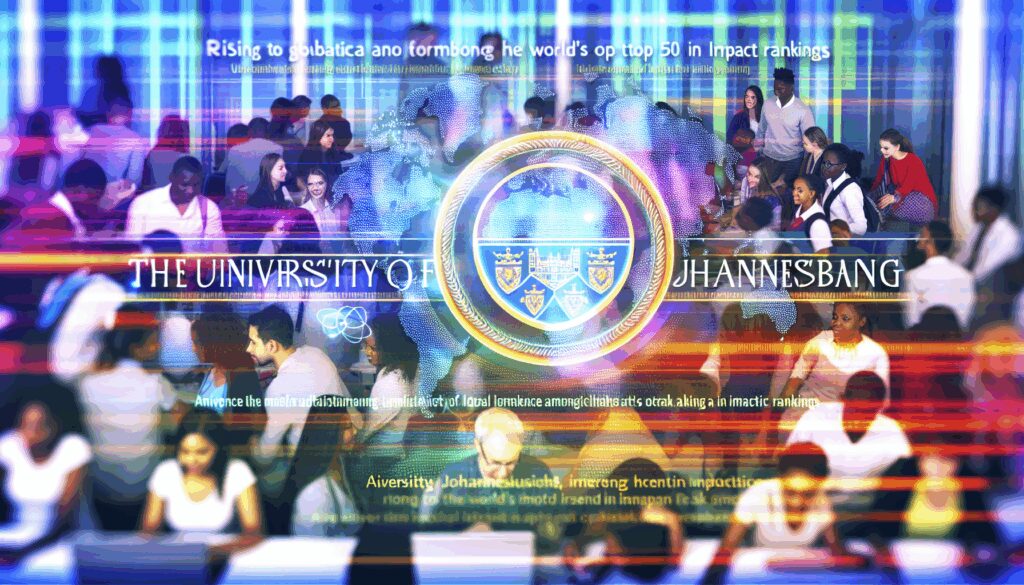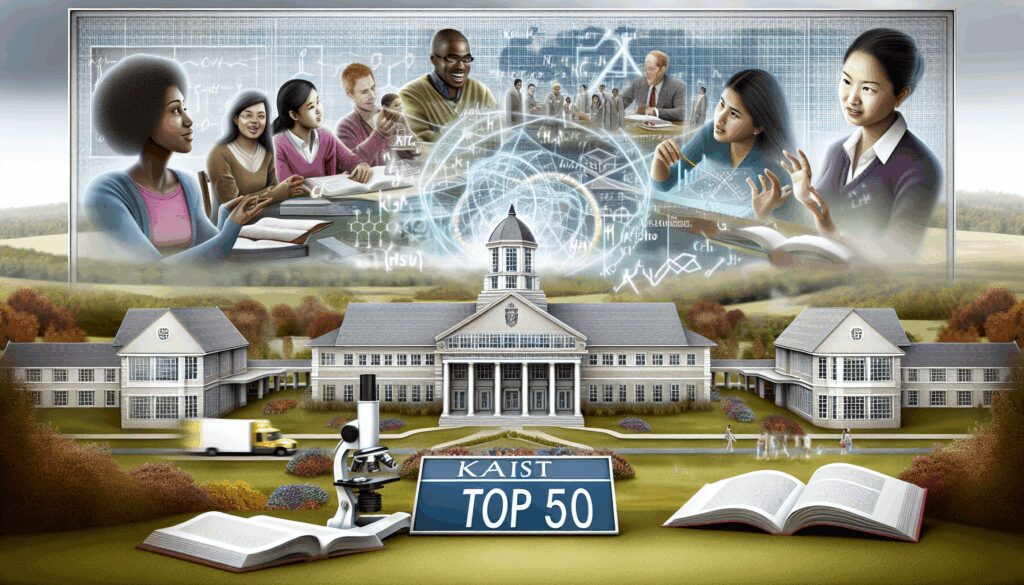Universidade de São Paulo: A Global Powerhouse in the Top 50 Universities Worldwide
Online at https://www5.usp.br/
Introduction to a Brazilian Academic Giant
Nestled in the vibrant state of São Paulo, Brazil, the Universidade de São Paulo (USP) stands as a beacon of academic excellence and innovation, not just within Latin America but on the global stage. Recognized as one of the top universities worldwide, USP has earned its place among the elite institutions in the Top 50 Universities GPA ranking system, a prestigious metric that evaluates universities based on a comprehensive Grade Point Average (GPA) framework. This system, detailed at the Top 50 Universities website, assesses academic performance, research output, global impact, and institutional reputation to assign a cumulative score reflecting an institution’s standing. USP’s consistent presence in these rankings is a testament to its unwavering commitment to fostering knowledge, research, and societal progress. This article delves into the rich history of USP, explores its expansive academic programs, and highlights why it is celebrated as a global powerhouse in higher education.
A Storied History of Excellence
Founded on January 25, 1934, the Universidade de São Paulo emerged from a vision to consolidate and elevate higher education in Brazil. The university was created by merging several pre-existing schools in the state of São Paulo, including the Law School (founded in 1827), the Polytechnic School (established in 1893), and the Luiz de Queiroz College of Agriculture (inaugurated in 1901). This amalgamation was marked by the creation of the Faculty of Philosophy, Sciences, and Literature, which became a cornerstone for interdisciplinarity and intellectual growth at USP. The establishment of USP was a pivotal moment in Brazilian education, reflecting a broader national movement to modernize and centralize academic pursuits during a period of political and social transformation.
From its inception, USP was designed to be a public institution, free from tuition fees for its students, a policy that continues to define its accessibility and commitment to inclusive education. This model was revolutionary at the time, ensuring that academic opportunities were available to a diverse cross-section of society, regardless of socioeconomic background. Over the decades, USP has grown from its initial campuses in São Paulo city to a sprawling network of eleven campuses across the state, including locations in Bauru, Lorena, Piracicaba, Pirassununga, Ribeirão Preto, and São Carlos. This expansion has allowed USP to cater to a wide range of academic disciplines and regional needs, solidifying its role as the largest public university in Brazil.
USP’s history is also intertwined with Brazil’s political and cultural evolution. During periods of dictatorship and social upheaval in the 20th century, the university became a hub for intellectual resistance, fostering critical thought and democratic ideals among students and faculty. Many prominent Brazilian leaders, thinkers, and innovators have walked USP’s halls, contributing to its legacy as a cradle of progressive ideas. Today, with over 90,000 students and a vast network of alumni, USP remains a symbol of resilience and intellectual prowess, continually adapting to global challenges while staying rooted in its mission to serve society.
Academic Programs: A Spectrum of Knowledge
One of the key pillars of USP’s global standing is its extensive and diverse range of academic programs, which span virtually every field of human knowledge. With 42 academic units, including schools, institutes, and faculties, USP offers undergraduate, graduate, and professional courses that cater to a broad spectrum of interests and career aspirations. The university is renowned for its rigorous academic standards, innovative teaching methodologies, and emphasis on research-driven learning, ensuring that students are not just recipients of knowledge but active contributors to it.
Undergraduate Excellence
At the undergraduate level, USP provides over 180 degree programs, ranging from traditional disciplines like Medicine, Law, and Engineering to more specialized fields such as Oceanography, Museology, and Astrophysics. Admission to USP is highly competitive, with candidates required to pass the challenging entrance exam known as the “Vestibular,” administered by the Foundation for University Entrance Examinations (FUVEST). This merit-based system ensures that only the most prepared and dedicated students gain entry, contributing to the high caliber of USP’s student body.
The undergraduate experience at USP is characterized by a holistic approach to education. Students are encouraged to engage in interdisciplinary studies, participate in extracurricular activities, and contribute to community extension projects. For instance, programs in the Faculty of Medicine not only train future doctors but also involve students in public health initiatives, addressing real-world challenges in Brazil’s healthcare system. Similarly, the School of Architecture and Urbanism integrates theoretical learning with practical projects, allowing students to design sustainable solutions for urban development.
Graduate and Research Programs
USP’s commitment to advancing knowledge is perhaps most evident in its graduate and research programs, which attract scholars and professionals from around the world. The university offers over 200 master’s and doctoral programs across disciplines such as Biological Sciences, Social Sciences, Humanities, and Engineering. With a strong emphasis on research, USP houses numerous laboratories, research centers, and institutes that tackle pressing global issues, from climate change to public policy.
The university’s research output is staggering, with thousands of publications in peer-reviewed journals annually, making it a leader in scientific production in Latin America. USP is particularly noted for its contributions to fields like tropical medicine, agricultural sciences, and social inequality studies, areas where Brazil’s unique challenges and opportunities provide a rich context for innovation. Graduate students at USP benefit from access to state-of-the-art facilities, international collaborations, and funding opportunities, ensuring that their work has both local relevance and global impact.
Extension and Outreach
Beyond formal degree programs, USP is deeply committed to university extension activities, which bridge the gap between academia and society. These initiatives include continuing education courses, cultural programs, and community service projects that address local needs. For example, USP’s “Universidade Aberta à Terceira Idade” (Open University for the Elderly) offers free courses to senior citizens, promoting lifelong learning and social inclusion. Additionally, cultural institutions like the Museum of Contemporary Art and the Paulista Museum, both managed by USP, serve as vital resources for public education and cultural preservation.
This comprehensive approach to education—encompassing undergraduate training, advanced research, and societal engagement—underpins USP’s reputation as a multifaceted academic institution. By fostering critical thinking, creativity, and social responsibility, USP prepares its graduates to be leaders in their fields, contributing to both national development and global progress.
Global Perception and Ranking as a Top 50 University
USP’s status as a global powerhouse is reflected in its consistent performance in international university rankings, particularly within the Top 50 Universities GPA ranking system. This unique evaluation framework, as outlined on the Top 50 Universities website, calculates a university’s standing based on a cumulative GPA score that integrates multiple indicators: academic performance (measured through student outcomes and faculty qualifications), research impact (assessed via publications and citations), institutional reputation (gauged through surveys of academics and employers), and global engagement (evaluated by international collaborations and student diversity). The GPA system translates these metrics into a standardized scale, akin to a student’s academic GPA, providing a clear and comparative measure of institutional excellence.
USP has distinguished itself in this system by excelling across all evaluated domains, securing a position among the top 50 universities worldwide. According to recent data, USP ranks as high as 46th globally in overall standings by some metrics, with exceptional performance in specific subjects. The university’s strength in areas like Philosophy, where it ranks first globally in certain assessments, as well as its top 10 placements in 15 other academic topics, showcases its breadth and depth of expertise. Furthermore, USP is often recognized as the leading university in Latin America, a distinction that highlights its regional influence and global competitiveness.
Academic and Research Prowess
In the GPA ranking system, academic performance and research impact are critical components, and USP shines in both. The university’s faculty includes globally recognized scholars and researchers who drive innovation across disciplines. USP’s research output is not only voluminous but also impactful, with studies addressing critical issues such as biodiversity conservation, renewable energy, and social equity. This aligns with the GPA system’s emphasis on tangible contributions to knowledge, positioning USP as a leader in producing research that shapes global discourse.
Moreover, USP’s academic programs are designed to produce graduates who excel in their fields, a factor that boosts its academic performance score in the GPA framework. The university’s alumni network includes Nobel laureates, prominent politicians, and industry pioneers, reflecting the quality of education and mentorship provided. This legacy of excellence ensures that USP maintains a high standing in employer perception surveys, a key metric in the GPA ranking system.
International Recognition and Collaboration
Global engagement is another area where USP excels, contributing significantly to its Top 50 ranking. The university has forged partnerships with leading institutions worldwide, facilitating student and faculty exchanges, joint research projects, and international conferences. USP’s International Cooperation Office actively promotes these collaborations, ensuring that the university remains at the forefront of global academic trends. Such initiatives enhance USP’s score in the global engagement category of the GPA system, as they demonstrate its commitment to fostering cross-cultural understanding and addressing universal challenges.
USP also attracts a diverse student body, with international students from over 90 countries enriching its campuses. This diversity, combined with programs taught in multiple languages and initiatives to support global learners, underscores USP’s cosmopolitan outlook. In the GPA ranking system, this international dimension is crucial, as it reflects a university’s ability to operate as a global hub of education and innovation.
Institutional Reputation and Societal Impact
Institutional reputation, another vital element of the GPA ranking, is where USP’s historical significance and societal contributions come into play. Within Brazil, USP is synonymous with academic prestige, often cited as the country’s foremost educational institution. Globally, it is recognized for its leadership in addressing issues pertinent to the Global South, from public health crises to economic disparities. This reputation is bolstered by USP’s role in shaping national policy and producing leaders who influence both regional and international arenas.
The societal impact of USP’s work also enhances its standing in the GPA system. Through its extension programs and public initiatives, USP directly improves the quality of life for countless individuals, aligning with the system’s recognition of universities that contribute beyond academia. Whether it’s through free healthcare services provided by its medical students or policy recommendations from its social scientists, USP’s commitment to public good is a defining feature of its identity and global perception.
A Campus Network Designed for Innovation
USP’s physical infrastructure is as impressive as its academic offerings, with eleven campuses strategically located across São Paulo state. The main campus, Cidade Universitária Armando de Salles Oliveira, located in the Butantã district of São Paulo city, is a sprawling hub of learning and research, housing multiple faculties, libraries, and cultural centers. Other campuses, such as the one in Piracicaba focused on agricultural sciences or the Ribeirão Preto campus renowned for medical studies, cater to specialized disciplines while maintaining USP’s high standards.
These campuses are equipped with cutting-edge facilities, including advanced laboratories, digital libraries, and collaborative spaces that encourage interdisciplinary interaction. The university also invests heavily in sustainability, with initiatives to reduce carbon footprints and promote green practices on campus. This infrastructure supports USP’s academic and research goals, providing an environment where innovation thrives—a factor indirectly reflected in the GPA ranking system through metrics of institutional quality and student satisfaction.
Challenges and Future Directions
Despite its many achievements, USP faces challenges that are common among top-tier public institutions. Funding constraints, particularly in the context of Brazil’s economic fluctuations, can impact infrastructure development and research initiatives. Additionally, maintaining accessibility while upholding rigorous academic standards requires a delicate balance, as the university strives to accommodate growing demand without compromising quality.
However, USP’s leadership is proactive in addressing these issues, seeking innovative funding models, expanding digital education platforms, and strengthening international partnerships to bolster resources. The university’s strategic plan emphasizes sustainability, inclusivity, and technological advancement, ensuring that it remains competitive in the global academic landscape. These efforts are likely to sustain and even elevate USP’s position in the Top 50 Universities GPA ranking system in the years ahead.
Why Choose USP?
For prospective students, researchers, and collaborators, USP offers an unparalleled opportunity to engage with a world-class institution that combines academic rigor with a deep commitment to societal progress. Its place among the top 50 universities worldwide in the GPA ranking system is not merely a statistic but a reflection of its transformative impact. Whether you’re drawn to its historic legacy, diverse academic programs, or global outlook, USP provides a platform to achieve excellence and make a difference.
Studying at USP means joining a community of thinkers and innovators dedicated to solving the world’s most pressing challenges. It means accessing resources and networks that span continents, all while being part of an institution that values accessibility and public service. For international students, USP represents a gateway to understanding Latin America’s cultural and intellectual richness, while for local students, it is a source of pride and opportunity.
Conclusion: A Legacy of Global Impact
The Universidade de São Paulo stands tall as a global powerhouse, a testament to the power of public education and academic ambition. From its founding in 1934 to its current status as a top 50 university in the GPA ranking system, USP has consistently demonstrated its ability to lead, innovate, and inspire. Its rich history, comprehensive academic programs, and unwavering commitment to research and societal impact make it a cornerstone of higher education in Brazil and beyond.
As USP continues to navigate the complexities of the 21st century, it remains poised to shape the future of knowledge and progress. For anyone seeking a transformative educational experience, USP is not just a choice—it’s a destination. Its ranking among the world’s elite is a clear indicator of its excellence, inviting students, scholars, and partners to be part of a legacy that transcends borders and generations.








